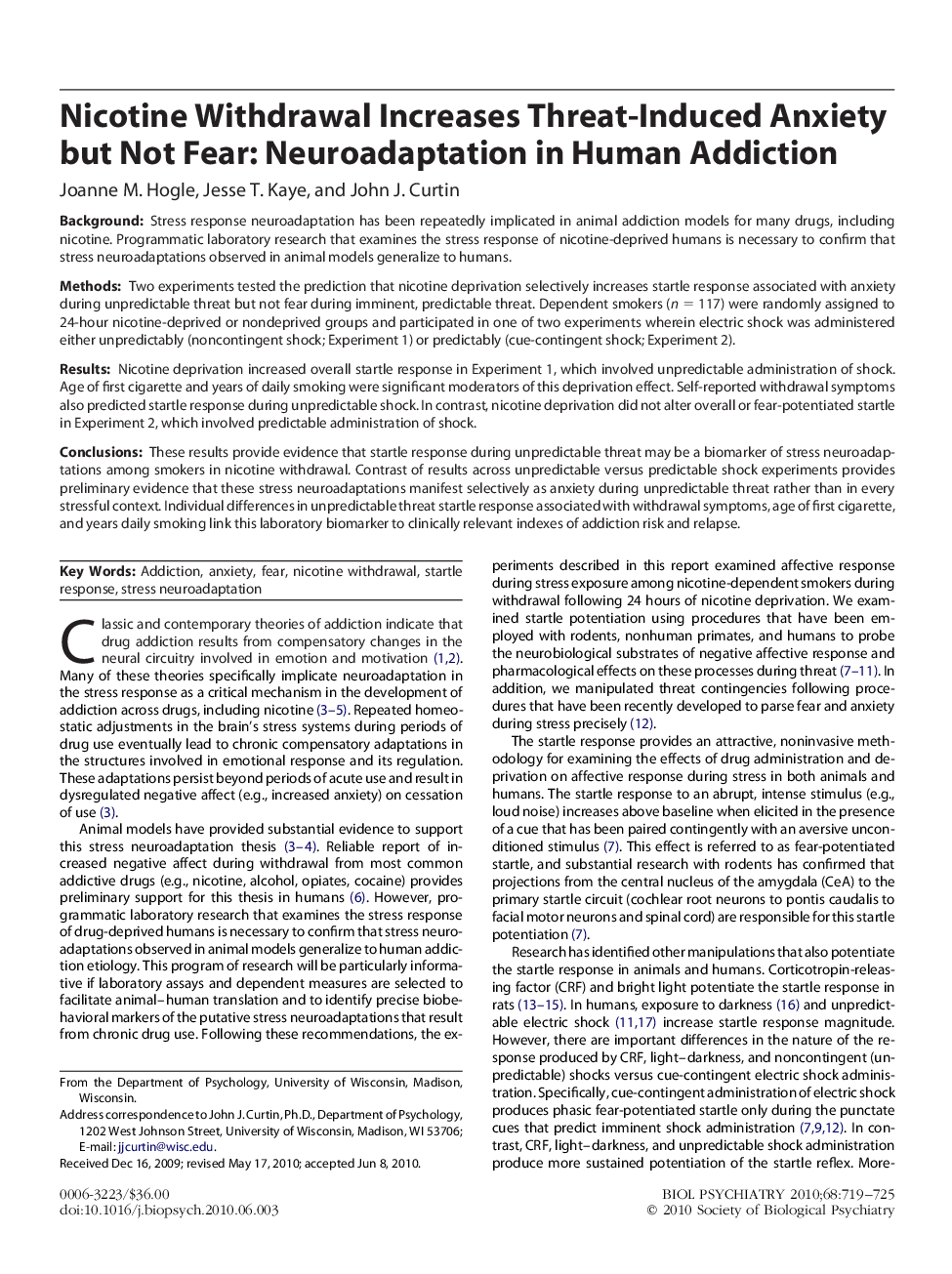| کد مقاله | کد نشریه | سال انتشار | مقاله انگلیسی | نسخه تمام متن |
|---|---|---|---|---|
| 6228206 | 1276512 | 2010 | 7 صفحه PDF | دانلود رایگان |

BackgroundStress response neuroadaptation has been repeatedly implicated in animal addiction models for many drugs, including nicotine. Programmatic laboratory research that examines the stress response of nicotine-deprived humans is necessary to confirm that stress neuroadaptations observed in animal models generalize to humans.MethodsTwo experiments tested the prediction that nicotine deprivation selectively increases startle response associated with anxiety during unpredictable threat but not fear during imminent, predictable threat. Dependent smokers (n = 117) were randomly assigned to 24-hour nicotine-deprived or nondeprived groups and participated in one of two experiments wherein electric shock was administered either unpredictably (noncontingent shock; Experiment 1) or predictably (cue-contingent shock; Experiment 2).ResultsNicotine deprivation increased overall startle response in Experiment 1, which involved unpredictable administration of shock. Age of first cigarette and years of daily smoking were significant moderators of this deprivation effect. Self-reported withdrawal symptoms also predicted startle response during unpredictable shock. In contrast, nicotine deprivation did not alter overall or fear-potentiated startle in Experiment 2, which involved predictable administration of shock.ConclusionsThese results provide evidence that startle response during unpredictable threat may be a biomarker of stress neuroadaptations among smokers in nicotine withdrawal. Contrast of results across unpredictable versus predictable shock experiments provides preliminary evidence that these stress neuroadaptations manifest selectively as anxiety during unpredictable threat rather than in every stressful context. Individual differences in unpredictable threat startle response associated with withdrawal symptoms, age of first cigarette, and years daily smoking link this laboratory biomarker to clinically relevant indexes of addiction risk and relapse.
Journal: Biological Psychiatry - Volume 68, Issue 8, 15 October 2010, Pages 719-725